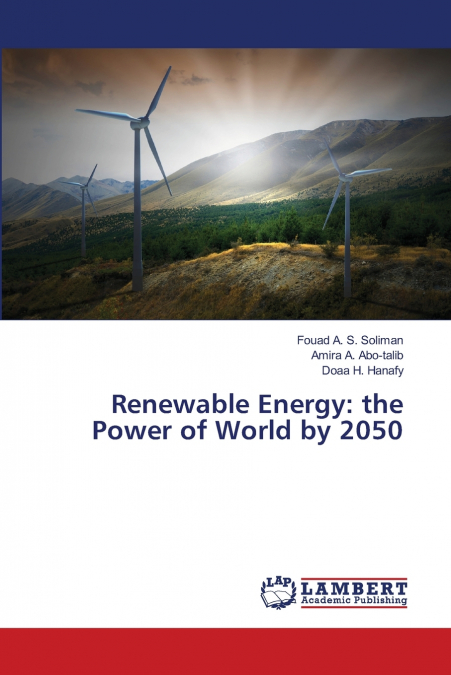
Amira A. Abo-talib / Doaa H. Hanafy / Fouad A. S. Soliman
 Librería Perelló (Valencia)
Librería Perelló (Valencia)
 Librería Aciertas (Toledo)
Librería Aciertas (Toledo)
 Librería Elías (Asturias)
Librería Elías (Asturias)
 Donde los libros
Donde los libros
 El AlmaZen del Alquimista (Sevilla)
El AlmaZen del Alquimista (Sevilla)
 Librería Kolima (Madrid)
Librería Kolima (Madrid)
 Librería Proteo (Málaga)
Librería Proteo (Málaga)
Renewable energy is generally defined as energy that comes from resources which are naturally replenished on a human timescale such as sunlight, wind, rain, tides, waves and geo-thermal heat. Renewable energy replaces conventional fuels in four distinct areas: electricity generation, hot water/space heating, motor fuels, and rural (off-grid) energy services. As a summary, Hydro Power (energy that come from water; you can use dams or water powered cars to transfer energy into electricity), Solar Power (energy that comes from the sun; you can use solar panels to transfer the energy into electricity), Wind Power (energy that comes from the wind; you can use windmills to transfer energy into electricity, Ethonal (energy that comes from corn; you can use ethanol powered cars to transfer energy into electricity), Geothermal (energy from ground source heat pumps; you can get geothermal energy from a geothermal power plant and use the energy to heat your water and home) Biomass (Energy from plants and animals; you can use biofuels for in your car and to heat your home) Tidal Power (Energy from the ocean’s tidal currents; use dams to trap the tides and power homes and factories).